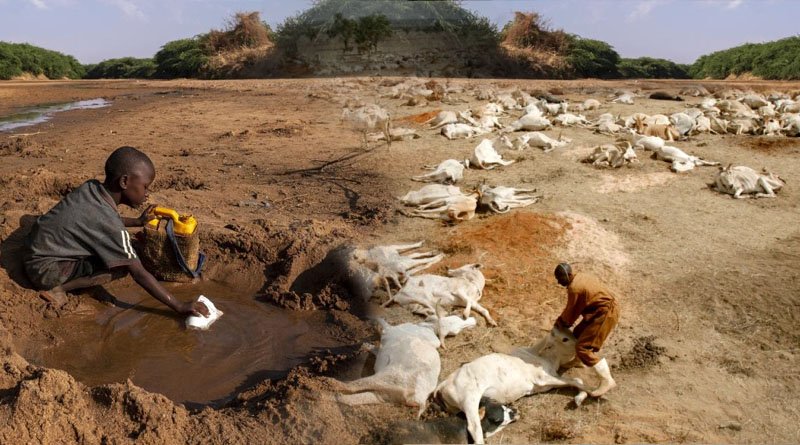A senior UN official claims that due to the worst drought the region has ever experienced, millions of people in East Africa are in danger of starving to death.

A senior UN official claims that due to the worst drought the region has ever experienced, millions of people in East Africa are in danger of starving to death.
The UN World Food Program’s regional director for Eastern Africa, Michael Dunford, stated in an exclusive interview with Arab News that the situation of drought in East Africa, including the Horn of Africa, is the worst in terms of food security that we have recently witnessed.
“Our current drought is the worst in over 60 years. Five rainy seasons failed us. The sixth rainy season is now upon us, and it is anticipated that it will also underperform. This indicates that the drought itself has an impact on more than 22 million people of East Africa.”
“Ethiopia, northern Kenya, and Somalia face a crisis. I am most concerned about Somalia because more than half of the population needs humanitarian assistance. In 2022, WFP’s operation has significantly expanded. Over 5 million people already receive our messages. The issue is that things will only get worse if it doesn’t start to rain,” continued Dunford, who earlier this week attended the third Riyadh International Humanitarian Forum.
A group of 16 international organisations said in a statement released in November that millions of people in Somalia, Kenya, and Ethiopia were in crisis as a result of the extensive crop and income losses brought on by the two-year long severe drought.
With the Saudis, we have a long-standing partnership. We want to find ways to create relationships that will last over time and have bigger, more consistent funding sources. In the region, more than 3 million people, who regularly go a day or more without eating and have sold their possessions to survive, are experiencing emergency levels of food insecurity, the statement claims.
More than 1.3 million people in Somalia have been forced to leave their farms and relocate to displacement sites as a result of the drought.
The WFP raised more than $4.6 billion last year, with the US being the largest single donor, according to Dunford, who expressed a desire to increase the number of donors.
Dunford stated that in order to be able to meet these ongoing needs, “We need funding from all donors, including Saudi Arabia.” “WFP needs more than $455 million over the next six months to operate in Somalia. The US government has primarily been in charge, so we are requesting assistance from all donors.
“Saudi Arabia has been a great support to us. WFP has received more than $1 billion in the last five years. The Saudis and I have been partners for a long time “Added he.
“What we are interested in seeing is how we can continue to build that relationship, certainly in terms of financial contributions, but also how we can work together beyond humanitarian response into areas like resilience, mitigation of climate change, and ultimately into the development of these countries.”
According to Dunford, the Somalia operation received assistance from the King Salman Center for Relief and Humanitarian Aid in Saudi Arabia.
“Next month, when we are dispersing their resources, we are hoping they will come down and visit. In order to have bigger and more dependable funding sources, we want to figure out how we can develop relationships over a longer period of time.”
Dunford also emphasised how the area has been affected by climate change. As I mentioned, 22 million South Sudanese are currently affected by the drought, and another million have been forced to flee their homes as a result of four years of nonstop flooding that has left the waters still standing.
Climate change is therefore very real. A bad situation is being made worse by it. We must be able to increase the capacity of these populations to withstand future crises as well as the one we are currently experiencing.
Climate shocks of this nature will continue. It matters how well we, as development actors, are able to anticipate population needs and how we can assist these nations’ governments. However, Dunford emphasised that from earlier crises, lessons had been learned.
After a drought in 2011, 260,000 people died and famine hit after two failed rainy seasons, he said. But now, despite five unsuccessful growing seasons, Somalia was not experiencing a famine, proving that the investments made and the responses modified were effective, he continued.
